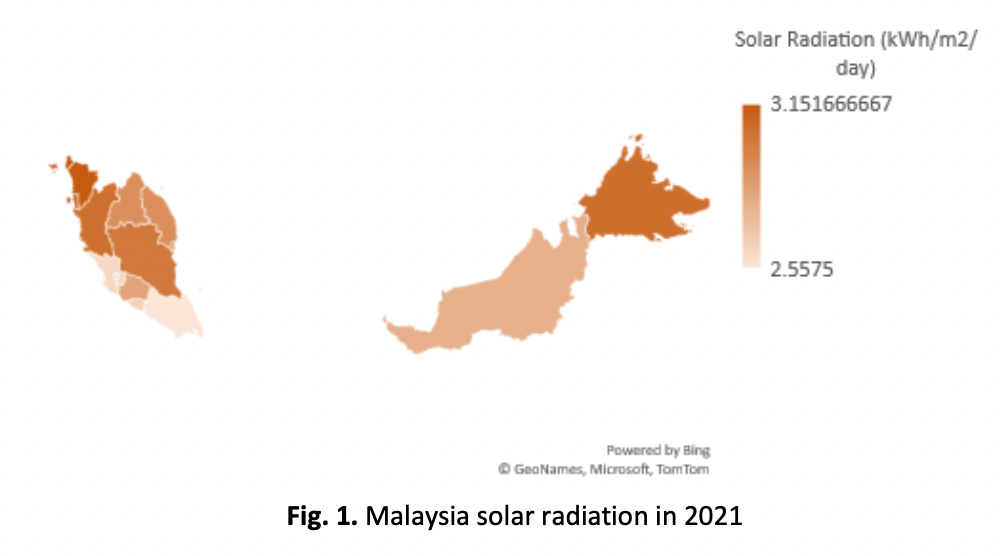An Environment Perceptive on Solar Installation for University Campus: A Case of Universiti Utara Malaysia
DOI:
https://doi.org/10.37934/araset.29.2.223235Keywords:
Solar energy, University campus, Installation, Economic, UUMAbstract
Sustainable energy has become the main agenda globally. Among the renewable energy (RE) sources, solar provides huge potential in electricity production due to the abundance of sun radiation. As tropical country Malaysia enriched with solar radiation the whole year. This paper aimed to study the environmental perspective towards solar installation in the UUM campus building. Climate change sharply decreased by implementing the solar photovoltaic (PV) system up to 91.2 % compared to the conventional source of electricity supply. The global warming impact of solar panel installation was in the range of 44.74 to 178.99 g CO2EQ / kWh. The most contributing process towards this impact was transportation. Installation PV in UUM campus, could avoided carbon dioxide emissions equivalent to 996 ton of waste recycled instead of landfilled or 47583 tree seedlings grown for ten years. Hopefully, the result encourages stakeholders to consume solar power as the primary source of renewable energy components on the way to achieving the Malaysia government’s target of 50% RE in electricity generation.
Downloads





























